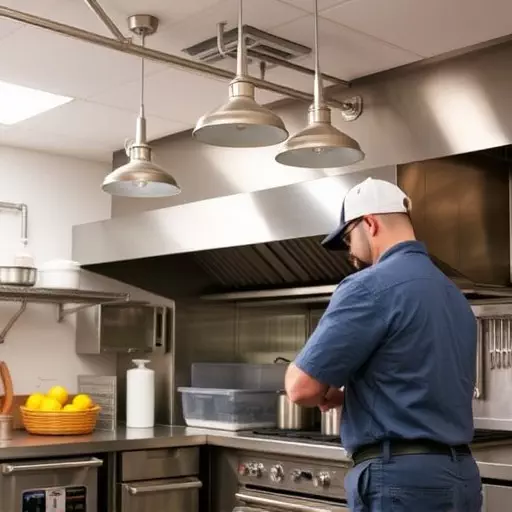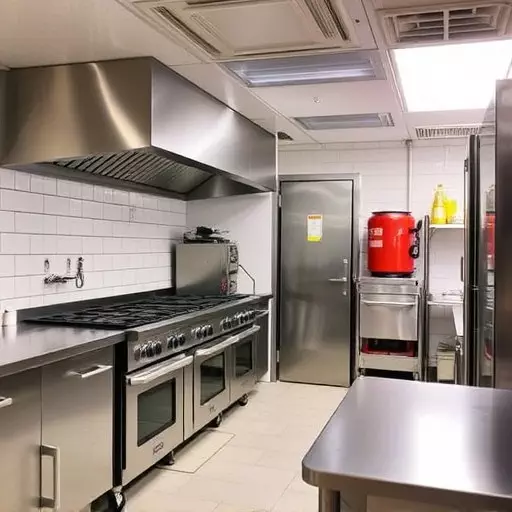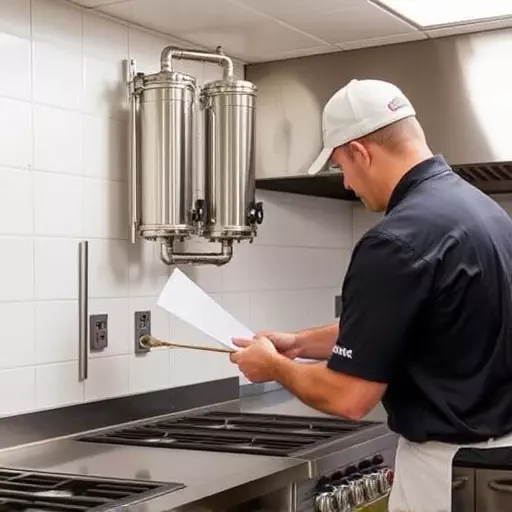Regular Kitchen Suppression Inspections in Spring Lake are crucial for maintaining fire safety standards, focusing on sprinkler heads, pipes, valves, and structural integrity. Professional assessors verify the systems' compliance with local codes, addressing potential damage or corrosion to ensure swift activation during kitchen fires. Timely maintenance prevents system compromise, offering peace of mind by protecting properties and occupants from cooking-related fires.
“Discover the vital role of kitchen suppression systems in fire safety and their critical importance in modern buildings. This article guides you through the essentials of kitchen suppression inspections in Spring Lake, highlighting key components to assess for optimal performance. Learn why regular maintenance is crucial and what to expect during fire suppression compliance checks. Ensure your kitchen suppression system is up to par with these essential insights.”
- Understanding Kitchen Suppression Systems: An Overview of Their Role in Fire Safety
- The Importance of Regular Inspection and Maintenance for Optimal Performance
- Key Components to Assess During a Kitchen Suppression System Inspection
- Ensuring Compliance: What to Expect During a Fire Suppression Compliance Check in Spring Lake
Understanding Kitchen Suppression Systems: An Overview of Their Role in Fire Safety
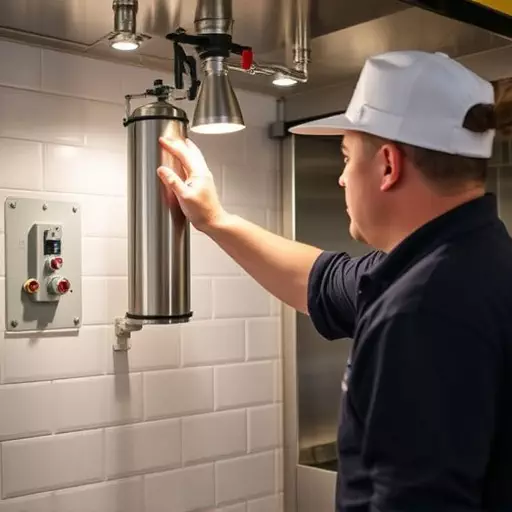
Kitchen suppression systems play a vital role in fire safety, designed to extinguish or control fires within their designated areas, such as kitchens, where grease and gas fires pose significant risks. These systems are part of a broader fire protection strategy, complementing other measures like alarms and evacuation plans. Regular kitchen suppression inspection is crucial for maintaining optimal fire safety standards, ensuring these systems function effectively when needed.
In Spring Lake, kitchen suppression inspections are essential components of fire suppression compliance checks. Professionals conduct thorough assessments to verify the system’s integrity, including the condition of the sprinkler heads, pipes, and control valves. They also check for proper placement, as well as any signs of damage or corrosion that could impede their effectiveness during an emergency. These inspections ensure that kitchen suppression systems are ready to activate swiftly, releasing fire-suppressive agents like dry chemical powder to combat grease and gas fires before they escalate.
The Importance of Regular Inspection and Maintenance for Optimal Performance
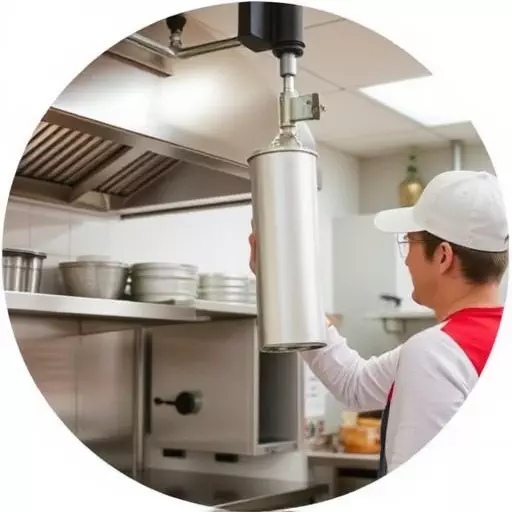
Regular inspections and maintenance are paramount for ensuring optimal performance from kitchen suppression systems in Spring Lake properties. These systems play a crucial role in fire safety, quickly suppressing flames to prevent rapid fire spread and minimize damage. However, like any mechanism, they require consistent care to maintain their effectiveness. Unaddressed issues such as faulty components, inadequate maintenance, or outdated equipment can compromise the system’s integrity, rendering it less reliable during an emergency.
Therefore, property owners and managers in Spring Lake should schedule routine kitchen suppression inspection and compliance checks. These assessments identify potential problems early on, allowing for timely repairs or replacements. Staying on top of fire suppression maintenance not only protects the building and its occupants but also helps meet local fire safety regulations. Regular inspections are a wise investment, ensuring peace of mind and the highest level of fire protection.
Key Components to Assess During a Kitchen Suppression System Inspection
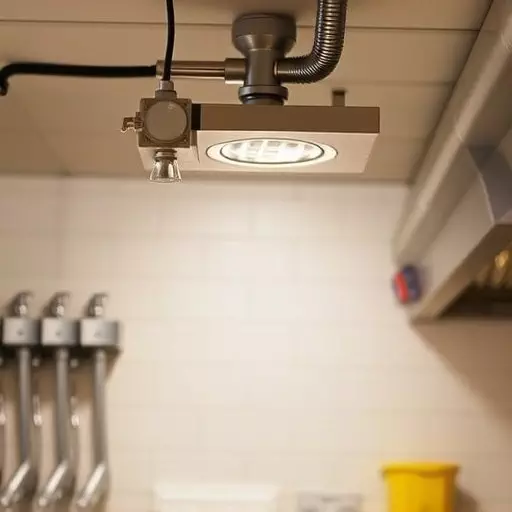
During a Kitchen Suppression System Inspection in Spring Lake, several key components must be meticulously evaluated to ensure optimal fire suppression performance and adherence to safety standards. These inspections are crucial for maintaining efficient kitchen suppression systems, which play a vital role in mitigating cooking-related fires. Among the critical aspects to assess are the system’s structural integrity, including the ventilation and ductwork, where proper installation and clear pathways for fire suppression agents are essential. All connecting pipes should be examined for leaks or damage, as even minor issues can compromise the system’s effectiveness during an emergency.
Additionally, the inspection should focus on the fire suppression agent itself, its storage, and distribution. This includes checking the agent’s quality and expiration date, ensuring proper storage conditions, and verifying that all nozzles and sensors are free from obstructions. Compliance with local fire codes and regulations is paramount, and regular maintenance records should be readily available. Fire suppression compliance checks in Spring Lake kitchens not only safeguard against potential hazards but also guarantee that these critical systems function as intended when it matters most.
Ensuring Compliance: What to Expect During a Fire Suppression Compliance Check in Spring Lake

When it comes to fire safety in Spring Lake, regular kitchen suppression inspections are non-negotiable. These comprehensive assessments, often referred to as fire suppression compliance checks, are designed to ensure that your kitchen suppression system is fully functional and up to code. During these inspections, certified professionals will meticulously review every aspect of your system, from the detection devices to the discharge heads and valves. They’ll test the integrity of the piping network and verify the availability and quality of the fire suppressant agent.
Expect a detailed report outlining any potential issues or areas that require maintenance. This could include recommendations for adjustments, repairs, or upgrades to enhance the overall effectiveness of your kitchen suppression system. Staying proactive by addressing these findings not only ensures compliance with local fire safety regulations but also maximizes the system’s ability to suppress fires quickly and efficiently, thereby safeguarding your property and its occupants.
